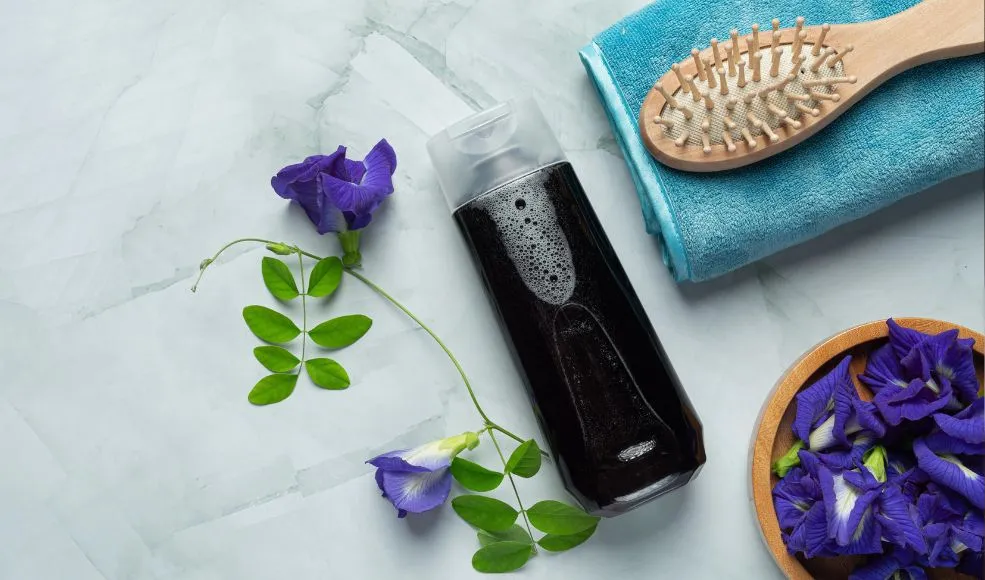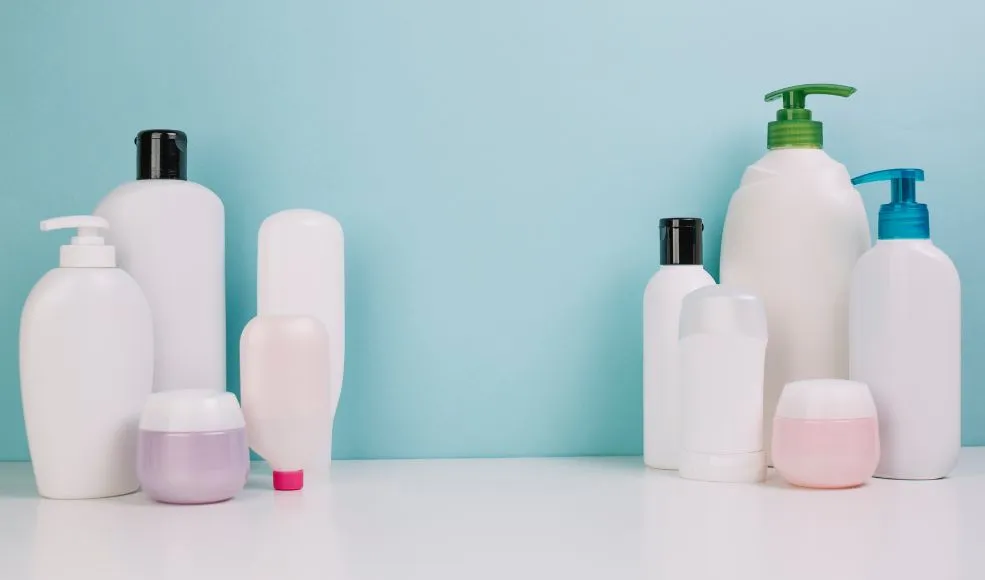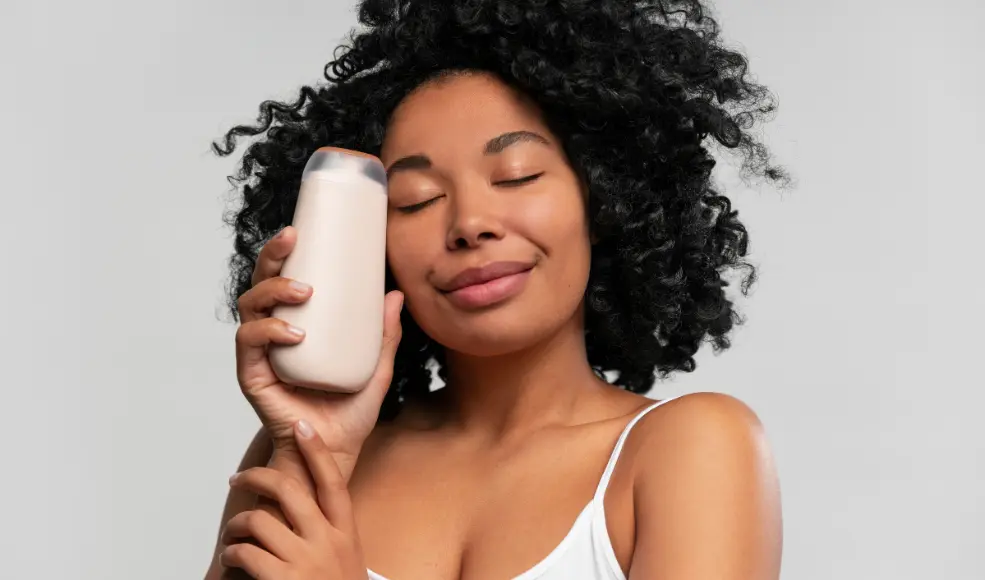Choosing the right shampoo type can feel overwhelming with so many options available on the market. Your shampoo plays a crucial role in maintaining the health and appearance of your hair. You don’t just want to know how to wash your hair but also how to choose the right shampoo type. The key to making the best choice is understanding the different types of shampoos and their specific benefits. This guide will walk you through various types of shampoos: Clarifying shampoo, moisturising shampoo, co-wash/cleansing conditioner, neutralizing shampoo, Chelating Shampoo, Scalp-Focused Shampoos, and how to select the one that best meets your hair’s needs.

Manufacturers often focus on making the words on the packaging attractive rather than educating consumers. It’s important to understand shampoos, the different types and how they work so you can make the best choice for your hair.
The most important characteristic of any cleanser (a shampoo is a hair cleanser) is that it must have surfactants (surface acting agents) to lift dirt, oil, and buildup from the hair. If it can’t do this, it won’t clean your hair.
The second characteristic is that it must be gentle. We recommend sulfate-free shampoos. Good replacements for sulfates include Decyl glucoside and cocamidopropyl betaine.

Clarifying shampoos are formulated to lift heavy dirt and buildup from the hair. This type of shampoo is typically clear or transparent. They contain strong surfactants that can effectively break down and remove product residues, oils, and other impurities.The need to use this will depend on your hair’s unique character in terms of how quickly it gets build up and your life style. For example, if you work out or your styling choices involve occlusive products such as hair spray or gel, you might have to use a clarifying shampoo more often. Be cautious, as overuse can lead to dryness.
Moisturizing shampoos are milder and contain fewer surfactants than clarifying shampoos. They focus on providing moisture to the hair while cleansing it. This type of shampoo is ideal for frequent washes, such as every two weeks, depending on your hair’s needs. They are usually cloudy or creamy. Moisturising shampoos often contain humectants like glycerin or oils that help to lock in moisture.
A co-wash or cleansing conditioner offers mild cleansing with heavy moisturizing properties. Unlike traditional shampoos, co-washes do not lather as much and are designed to gently cleanse the scalp and hair without stripping away natural oils. It’s perfect for mid-week washes or if you wash your hair very often, like every week. This product keeps your hair hydrated and soft while gently cleaning it.
After a chemical treatment, such as a relaxer or a perm, it’s crucial to use a neutralizing shampoo. This product neutralizes the effects of the chemicals and restores your hair’s pH balance. The chemicals used in these treatments can leave the hair in an alkaline state, which makes it more prone to damage. A neutralizing shampoo, which is often color-coded to show whether any relaxer remains, ensures that all traces of the chemical are removed and your hair returns to its normal, slightly acidic pH. Skipping this step can result in severe and irreparable damage.
Chelating shampoos go deeper than clarifying shampoos, targeting and lifting mineral deposits from your hair. These minerals can come from hair extensions, hard water, frequent beach visits, or prolonged outdoor exposure. Chelating shampoos contain chelating agents that bind to the minerals and help remove them from the hair. Use this if you have heavy residue due to environmental factors or hard water. This type of shampoo ensures your hair remains free from damaging minerals, which can cause dryness and brittleness over time.
These are designed to treat specific scalp issues like dandruff, itching, or excess oil. Scalp-focused shampoos are all about keeping your scalp in great shape. They usually have ingredients like tea tree oil, peppermint, or salicylic acid, which help soothe irritation, reduce dandruff, and keep your scalp healthy. If you deal with dryness, flakiness, or itchiness, these shampoos are a must. Use as needed to maintain a healthy scalp environment.

Selecting the right type of shampoo isn’t just about understanding what each type does—it’s also about recognizing your hair’s specific needs, and knowing how to meet them effectively. To make the best choice, consider these additional factors:
Hair porosity refers to how well your hair absorbs and retains moisture. High porosity hair tends to absorb moisture quickly but loses it just as fast, making a moisturizing shampoo ideal for retaining hydration. Low porosity hair, on the other hand, resists moisture, so a lighter, clarifying shampoo may help in removing buildup that can weigh down your hair and prevent it from absorbing moisture.
Your scalp health plays a vital role in your hair’s overall condition. If your scalp is oily, a gentle clarifying shampoo can help regulate oil production without stripping your hair. For dry or sensitive scalps, look for shampoos with soothing ingredients like aloe vera or tea tree oil, which can help alleviate irritation and restore balance.
Consider the environment you live in when choosing a shampoo. If you live in an area with hard water, a chelating shampoo can help protect your hair from mineral buildup. For those frequently exposed to pollution, a shampoo with antioxidants can shield your hair from damage.
Your daily habits and activities significantly influence the type of shampoo you should use. If you’re often active, such as exercising frequently or spending time outdoors, your hair may accumulate sweat, dirt, or even chlorine from pools, making a clarifying shampoo beneficial for regular deep cleansing. On the other hand, if you often use styling products like gels or hairsprays, you might need a clarifying shampoo to remove product buildup. Additionally, if you regularly color or chemically treat your hair, a gentle, moisturising shampoo that maintains your hair’s moisture and integrity would be ideal.
Choosing the right shampoo doesn’t have to be complicated. By understanding the different types of shampoos and what they offer, you can easily find the one that best suits your hair’s needs. Whether you need deep cleansing, extra moisture, or scalp care, there’s a shampoo out there that’s perfect for you. Remember, the right shampoo is the foundation of a good hair care routine, so take the time to choose wisely and enjoy healthier, more beautiful hair.
Copyright 2025 © Tresses Lagos | Created with 🤍 by Toast
Subscribe to our weekly newsletter for expert tips and tricks on healthy hair care and get our free Hair PlayBook.